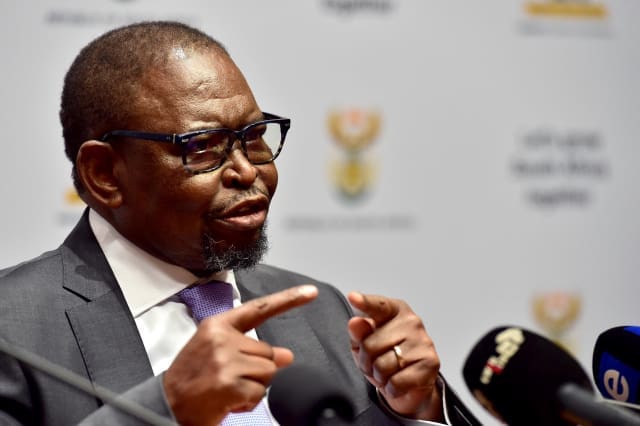Civil society groups are renewing demands for the introduction of a basic income grant just days before Finance Minister Enoch Godongwana presents the government of national unity’s first midterm budget, according to the report in the Sunday Times’ Business Times.
On Wednesday, Godongwana is expected to hold firm on fiscal consolidation, focusing on reducing government debt, limiting public spending, and controlling the growth of the public sector wage bill.
In an open letter to President Cyril Ramaphosa, coordinated by the Institute for Economic Justice, civil groups accuse the National Treasury of attempting to block the implementation of a basic income grant. The letter urges that the upcoming medium-term budget policy statement (MTBPS) address the cost-of-living crisis impacting millions.
The groups are pushing for a grant set at the food poverty line, roughly R800 per person.
“We make reference to the right to social assistance in particular, especially the development of government policy on introducing basic income. As we head towards the announcement of the MTBPS at the end of this month, we want to raise the alarm about disturbing trends in the determination of policy by Treasury,” the letter states.
The letter acknowledges Ramaphosa’s commitment to establishing basic income support through the Social Relief of Distress (SRD) grant but voices concern about the recent lack of progress toward a permanent basic income system.
“This is at a time when desperation in the country continues to increase. The number of people applying for the SRD grant continues to grow, with over 17-million active applications — this roughly corresponds to expert estimates of need and eligibility.”
Something must be done to solve South Africa’s social ills but the country cannot afford nor sustain a Basic Income Grant (BIG). This was the position of Business Unity South Africa’s CEO, Cas Coovadia, during GroundUp and Black Sash’s BIG Debate in Cape Town on Thursday.
The proposed Basic Income Grant (BIG) would be a cash transfer from the government to citizens aged 18 to 59. The South African government has expressed support for this, and has indicated that the existing R370 Social Relief of Distress (SRD) grant that was introduced during Covid, could be the start of a more comprehensive, universal basic income grant.
In his Budget Policy Statement in Parliament, Minister of Finance Enoch Godongwana announced that the monthly SRD grant would be extended to March 2025 “while government considers social security policy reforms and a funding model”.
He had said that if the temporary grant “or a similar type of grant” were to be made permanent, the number of social grant beneficiaries would rise from 27.3-million in 2023/4 to 40.4-million in 2040/1. This would cost 3.8% of South Africa’s gross domestic product, and would require a permanent source of funding such as an increase in taxes.
The National Treasury has strongly opposed the basic grant, arguing that it is unaffordable in South Africa’s current fiscal context of high debt repayments and low economic growth.
Arguing for the BIG on Thursday was Thokozile Madonko, a researcher at Wits University. She said, “10% of the population owns more than 80% of the country’s wealth.” She said the grant was one way to start redistributing this wealth.
The Post Office and Postbank have failed to manage the social grants payment system. But the private sector is not an easy fix either.
The failures of the Post Office and then Postbank have led to suggestions that the private sector should play a larger role in the payment of social grants. In this article we show that South Africa’s social grants history reveals the dangers of thinking private companies are the easy answer.
Fintech companies – old and new – are entering the grants payments space with little oversight, many of them through the promised benefits of ‘financial inclusion’.
Under the guise of financial inclusion, private financial companies can and do target grant recipients for exploitation and extraction. If a Universal Basic Income Grant (UBIG) is to be successful in South Africa, then the grants payment system must be safeguarded from private actors seeking to make big profits at the expense of grants recipients.
